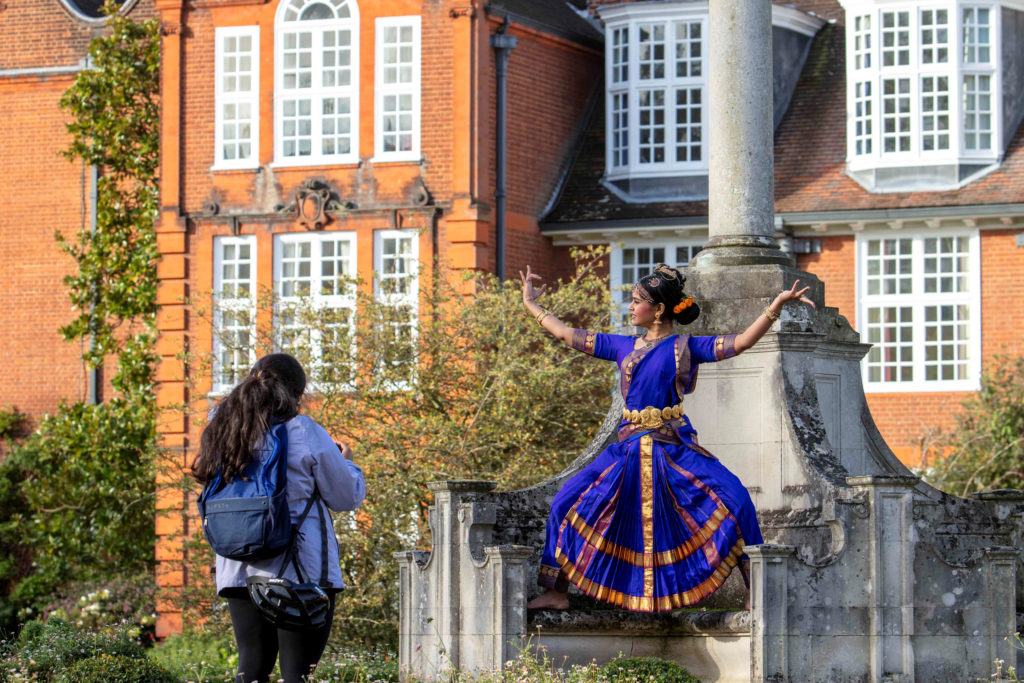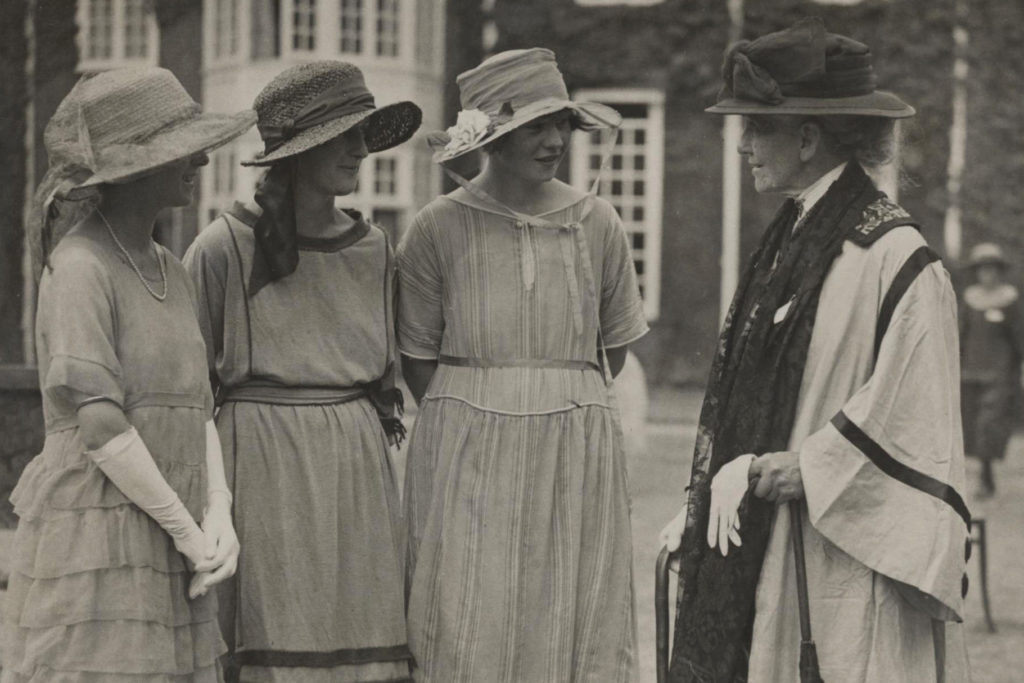Dr Emma Mawdsley – Geographer – NEW
–
Dr Emma Mawdsley is Fellow of Newnham College, Reader in Geography, and Director of the Margaret Anstee Centre for Global Studies. In May 2021 she was awarded the prestigious Busk Medal from the Royal Geographical Society “for exceptional engagements with fieldwork, research and knowledge production about the global South”.
Have you ever read a news article about ‘toxic aid’ or ‘rogue donors’? Perhaps a story about how a ‘new cold war’ with China is playing out in Africa?
Or maybe an article arguing that British aid money is wasted on vanity projects in Africa, while British people go hungry?
Emma Mawdsley’s research focuses on the complexities that underlie these simple assertions. “This is not a backwater of research,” she makes very clear. “How we talk about this, any analysis and research, particularly of China … really matters – for communities, countries, and global geopolitics.
“One of the very rewarding things about this research … is engaging with politicians and policy makers – and the chance for dialogue, and maybe change”.
“The chance for dialogue, and maybe change”
Emma has worked on development politics since her PhD, but in 2005 her work took a new turn with a shift in focus to the increasing development activities of China, India, Brazil and many other ‘Southern’ countries. This included loans for infrastructure projects across the world, health and education programmes, technical assistance, and much more besides. But it was often poorly understood – ‘toxic aid’, some papers and politicians called it.
But for decades, countries in the Global South have been investing in each others’ development, building up their own geopolitical influence alongside powerful claims to solidarity and shared experiences. South-South development co-operation now plays a major role in world finance – indeed, Southern development finance is now significantly more than is provided by the World Bank.
But the idea of ‘rogue aid’, is, Emma says, an “absolute falsehood”. China’s development in Africa is not, of course, without national self-interest or problematic and uneven outcomes, but for traditional donor nations to frame it as ‘rogue’ is “lacking in evidence, understanding and above all, really lacking in self-reflection.”
India: creating a ‘win-win’ approach to development
Emma’s own particular expertise is in Indian development activities, of which the country has, Emma says, “a very honourable history” stretching back to the 1950s.
India is currently providing development finance for dam building in Rwanda, preserving architectural heritage in South East Asia, roads and infrastructure in Afghanistan, and much more. Emma explains that the country has a “massive commitment to technical assistance, training people up, some of which is really progressive.” She particularly likes their support for SEWA, the Self-Employed Women’s Association, the world’s largest women’s trade union, to work with Afghan women to improve their economic self-sufficiency. As Emma says, “Indian women can deliver a lot more relevant knowledge for women in Afghanistan than someone in an EU country, for example.”
And, crucially, until the recent surge in Covid, India was doing far better than the UK and the US in sharing vaccines with developing nations.
This is not to say that India is a faultless development partner: they do have lower labour and environmental standards than European nations, and India too is caught up in competition with China. Indian ‘development’ interventions, like all partners, creates winners and losers – the latter are not often acknowledged. Nonetheless, “it is an appreciated and admired partner in many parts of the world.”
One of the key aspects of Indian development partnerships, she feels, is that Indian politicians portray it as a ‘win-win’ situation for both partners. Indian-Kenyan development, for example, is portrayed as motivated by solidarity and mutual interests, rather than ‘charitable’ aid. The extent to which this is true is debatable (India probably benefits more at present), but nonetheless, it places sovereign states on an equal footing, at least in diplomatic parlance, and makes more room for partner voices and agency.
Why we all benefit from global development
When we talk about UK ‘development funding’ or ‘international aid’, many British people see it as an effectively ‘altruistic’ donation from richer countries to poor countries. It may be seen as noble or naïve, but this emphasis on the benefits flowing one way is consistent. The geopolitics underlying it are obscured by the aid narrative.
Emma feels that this emphasis on the reciprocal benefits to the richer nation is crucial for the future of UK development – and for our own national security. It’s important to think about poverty and need, but she feels that everyone would benefit from a more open conversation about impact.
“Most people do not realise how much the UK benefits” from our development finance and activities, she explains. “But if we’re investing in health, or in climate change, we in the UK are benefitting, and there’s nothing necessarily wrong with that – it depends on how it is done, and making sure it is genuinely inclusive.”
“We need to hold our politicians to account to do really effective aid that works in the interests of people in developing countries and people in the UK, and I think there’s loads of opportunities for us to do this.”
Covid has shown us the extent to which nations are ultimately interdependent. “A lot of health geographers are writing right now about anti-microbial resistance: it’s already there in India and elsewhere. The UK has a fantastic medical establishment. If we don’t fund and work with peers in places like India to try to find solutions, we in the UK will be suffering. Some of this research is happening already, but we need much more cooperation.
“Other really good examples are around climate change. If we help countries move straight to solar and renewables, that’s a cheaper and effective way per ton of carbon reduction than decarbonising here, although we also need to do that too!”
Is south-north aid the future?
Meanwhile, in this changing development geography, the UK and others are trying to find their way. Most of the traditional donors such as the Foreign, Commonwealth & Development Office (formerly DfID), have been exiting and transitioning their relationships – controversially – with countries like Brazil and India.
Emma is the UK lead of the FCDO-funded India-UK Development Partnership Forum, a small part of a bigger India-based network, which explores ways in which the UK and India can partner as peers, to improve development outcomes in India but also in other countries such as Kenya.
Will we ever have south-north help?
Yes, and we should. “15 years ago, some thought that the West would show the rising powers how to ‘do development properly’, and if anything, the movement has been in the opposite direction,” Emma argues.
We’re already using the language of mutual benefit, and there is a much stronger turn to infrastructure development and industrial policy. Social programmes are also travelling – colleagues at the University of Sussex and São Paulo, for example, are looking at Brazil as a policy innovator, including ideas such as cash transfer programmes and participatory budgeting. In the future, we may well see south to north knowledge and experience transfer.
Ultimately, Emma says, it’s about “co-learning, and not just as a hollow statement. We really need to listen and learn from each other.”






